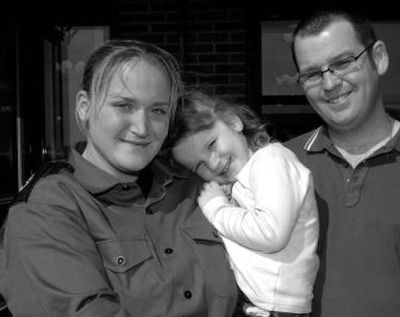Britain forbids captives from selling stories

LONDON – Britain’s Defense Ministry banned military personnel from selling personal stories to the news media on Monday, following rising public anger over paid interviews with two of the 15 British sailors and marines held captive for nearly two weeks by Iran.
Faye Turney, the only woman among the former captives, told the Sun newspaper that she “cried my eyes out” and feared that she was going to be raped and executed. Arthur Batchelor, 20, the youngest of the captives, told the Daily Mirror that he “cried like a baby” and that his captors tormented him by repeatedly saying he looked like the British comedy character Mr. Bean.
The British news media have a long tradition of paying major sums for exclusive interviews with people who catch the public eye. Nonetheless, the military’s initial decision to authorize the 15 to accept money has been broadly criticized by many members of the armed forces, opposition politicians and families of British soldiers who have been killed or wounded while serving in Iraq and Afghanistan.
Critics have accused the ministry of attempting to stage-manage the public relations fallout over an incident in which British personnel were easily captured March 23 and appeared to quickly fold under pressure, issuing written and videotaped confessions that they illegally entered Iranian waters.
Liam Fox, the opposition Conservative Party’s spokesman on military issues, said in an interview that the “squalid public auction” of the stories had “cost public sympathy” for the former captives and “damaged the dignity” of Britain’s armed forces.
Reg Keys, the father of a British soldier killed in Iraq in 2003, accused the government of using the sailors for “spin.” He told the BBC that when his son was killed, his military colleagues were not allowed to speak publicly about his death. “It seems to me that it is selective,” he said. “If the story aids the government in their propaganda against the Iranians, they will allow people to speak, but if it is embarrassing to the government or the Ministry of Defense, you are not allowed to.”
Defense Secretary Des Browne, announcing the ban pending a review of the military’s policy, said it had been a “very tough call” for military officials to authorize the paid interviews. He said officials decided that in this “particular and exceptional case,” it made sense.
The fee paid to Turney for selling her story to the Sun and the television network ITV1 was not disclosed, but the BBC reported that it could be “six figures.” On the television program, Turney said a percentage of the proceeds would be used to help crew members and families from her ship, HMS Cornwall.
Lt. Felix Carman, another of the former captives, told reporters that it was “slightly unsavory” that his colleagues were taking money for their stories. But he said of Turney: “She is safeguarding her daughter’s future. I would like to see what the critics would do in a similar position.”
In the Sun interview, Turney, the mother of a young daughter, Molly, said that at one point during her captivity, she was measured “from head to toe,” then heard sawing and hammering. “I was convinced they were making my coffin,” she said.
Turney was featured on several videos confessing to illegally entering Iranian waters, and three letters in her handwriting were made public. In the television interview Monday, Turney said she felt like “a traitor” but felt she “had no choice” but to cooperate with the Iranians. She said the wording of the letters had been dictated. “If I did it, I feared everyone in Britain would hate me,” she said. “But I knew it was my one chance of fulfilling a promise to Molly that I’d be home for her birthday.”